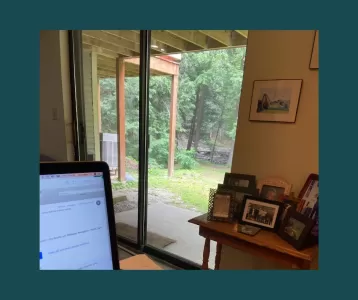Tips for How to Negotiate for the Non-Negotiator
Her lease ends the last day of July so there is plenty of time except her plans were to be out of state for the next two months. Therefore, she needs to resolve this now.
She asked me to join her at the dealership for support, but she was the person making the deal. She told me she wanted this to be over, didn’t want it to drag on and overlap her planned trip, but she was nervous about the increase in the monthly payment combined with the money down. These terms were challenging because her salary had been reduced and she needs money for a down payment for an apartment.
There were two options she was considering. First would be to turn in the car “as is” and be told by Honda corporate what costs there would be to fix the dents and scratches. The cost of those repairs was unknown for purposes of this deal. The alternative option would be for the dealership to take on the old lease vehicle if she agrees to the new lease with some money down and about fifty dollars more a month.
Neither of these deals were great for her. She was considering accepting the new lease terms so the process could be over. Doing this would mean the process would be done and she wouldn’t have to start looking elsewhere. In general, She wanted this to end, was concerned the negotiations would create unwanted confrontations, and really because she didn’t feel any real control.
Anna told me she was not a negotiator. She didn’t want to get into a conflict with the salesman. What we discussed were the merits of each option, determining none were ideal for her and how she was getting ready to accept a deal that wasn’t great for her situation. We did our best to distinguish between the facts and our speculation. We did not know if what was presented was in fact the best offer. We also couldn’t be certain, but it would be a good chance, if she were to consider the offer overnight the deal would likely be available tomorrow. With that she signaled for the salesman to return.
To my surprise she told the salesman she was struggling with this decision. She laid out the details about the deal which were causing her hesitation. She didn’t threaten to walk out but spoke what was on her mind. He asked some additional questions to uncover possible discount opportunities and left to talk with his manager. You know the routine.
The salesman returned saying if she was open to lease a different car, she could have a lower payment. It turns out the other car was the next model up with more safety features which she liked. She liked the car and completed the sale that day. She left having had a successful experience negotiating.
There are a couple of points I wish to make. First would be negotiations are conversations. Be clear what you want and do your best to understand what the other person wants. This allows both sides to participate in crafting a solution that will satisfy everyone.
The second point is my daughter started the transition from “Not being a Negotiator” to becoming a Negotiator because she tried. This is true regardless of the outcome. She knows she spoke up for herself. This is important for it removes the possibility in second-guessing herself later with “what if I had only said how I felt” would that have made a difference? She now knows that it did in this case.
Again, if you want to change something about yourself you must be willing to try. Anna left the showroom with a new agreement and a feeling of being in control in her life. She did this by expressing her personal thoughts and concerns first to someone she trusted. This practice allowed her to determine what was important to tell the salesman giving her the possibility of getting a deal that would work better for her.
You are the only one who knows what will work for you. The only way others will know and can help is by putting your thoughts into words. Coaching is a tool you can access for support overcoming situations that are uncomfortable or when you want more control. Reach out to me to for a free conversation about the challenges you are avoiding and see what might be possible.








